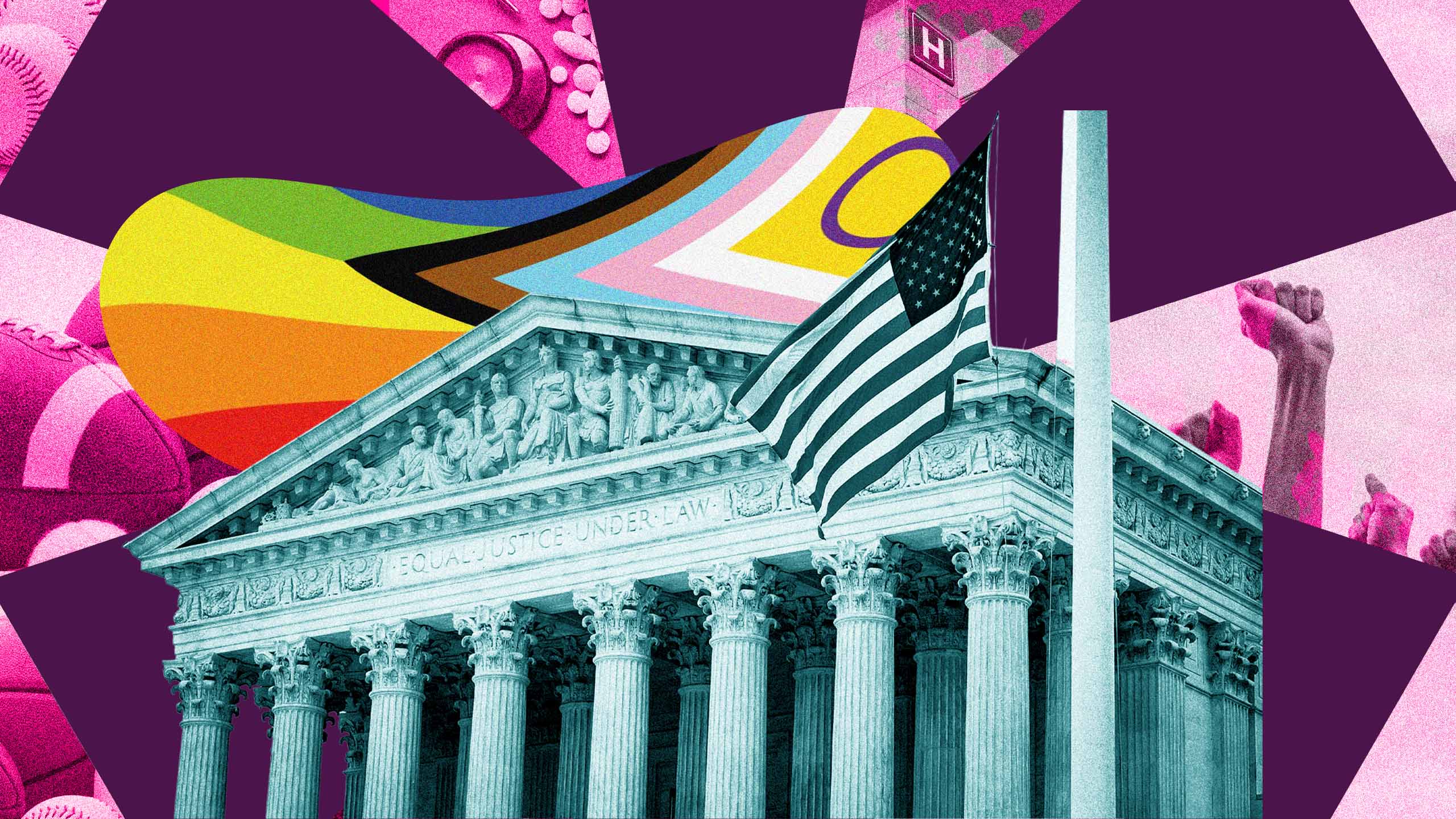On Friday, the U.S. Supreme Court ruled that a website designer who wishes to start a wedding web design business is allowed to discriminate against gay and lesbian couples who might contact her for services in the future (the designer has not yet actually started a business). The case, 303 Creative LLC vs Elenis, continues a recent trend from the high court to find wedge cases that allow homophobes to discriminate against gay couples in the wedding production industry.
This latest case is especially concerning because it shows that the six conservative justices who control the court are still willing to push for the rights of homophobes in a post-Bostock age. Bostock made it illegal to discriminate against gay and trans people in employment decisions. But Friday’s ruling shows that the state of LGBTQ2S+ rights is still very much up in the air as long as these six people continue to serve lifetime terms on the nation’s highest court and rule by legal fiat.
This is all especially concerning for the trans community in the U.S., whose rights are currently under all out assault from the right, and who have also long depended on the court to see cases fairly in order to maintain our rights and dignity. In that respect, the particulars of the 303 Creative decision cast a long shadow over the future of trans rights in the U.S.
A report by Melissa Gira Grant for The New Republic revealed Friday that one of the plaintiff’s claims in the 303 Creative case, that a gay man named “Stewart” had contacted the plaintiff about potentially creating a gay wedding website, was not real. The man in question was married to a woman and was a website designer himself. In other words, the claim that set the basis for the entire case appears to have been fabricated.
Further, the court ruled that the plaintiff, who didn’t actually experience a legal injury from Colorado’s LGBTQ2S+ civil rights laws, was allowed to exclude services to an entire demographic of people simply because she “worried” that the law may compel her to express a sentiment that ran counter to her bigotry.
That the court took this flimsy justification for bigotry seriously should be lighting up alarms across the trans community. People all across the world have irrational “worries” about trans people, but these are hardly justifications for our exclusion from society. After all, it’d be quite easy for a transphobic shopkeeper to copy the 303 Creative case rationale and imagine all kinds of scenarios involving trans people using their public restrooms that could convince the high court to buy their argument.
Recently, a string of federal court rulings against state laws banning drag performances and gender affirming care for minors has buoyed hope within the trans community that the courts may stave off what has felt like the inevitable and ruthless march of red state legislators and their federal Republican backers.
State laws banning gender affirming care for minors in Florida, Tennessee and Arkansas were all put on hold by federal judges. In one case, even a Trump-appointed conservative judge, U.S. District Court Judge James Patrick Hanlon, ruled against a state ban in Indiana.
“It’s not hard to imagine the kind of ‘worries’ an anti-trans plaintiff might conjure in order to manufacture a case to kill trans rights in the U.S.”
While trans people looked nervously at the high court and its conservative majority, the fact that even conservative judges in the lower courts were ruling in our favour offered a potential light at the end of the tunnel in this seemingly unending onslaught of legislative attacks. After all, if a law is never allowed to be put into place, it’s almost as though it had never been passed in the first place.
There were still five justices on the court, a majority, who either voted in favour of trans rights in Bostock, or are likely to vote generally in favour of a liberal argument on trans rights.
But the SCOTUS ruling in the 303 Creative case, with its flimsy factual basis, throws this assumption into disarray. If the court is willing to rule in a case where the injury claimed is a “worry” that a plaintiff might have to take on a gay client someday in her hypothetical business, how will they rule when confronted with the vast misinformation campaign of the anti-trans political front?
It’s not hard to imagine the kind of “worries” an anti-trans plaintiff might conjure in order to manufacture a case to kill trans rights in the U.S. Most trans people have already heard the more frequent conjurings of the imaginative transphobe: a late night bathroom attack, having to see a trans doctor, being housed with a trans woman in prison.
None of these are proven systemic harms stemming from trans rights, but this court just showed that defendants don’t have to prove harms in order for them to wipe out rights for minority demographics. And that, above all, should serve as a “worry” for all American trans people.
The 303 Creative ruling points to trouble ahead for LGBTQ2S+ rights—but it doesn’t grant businesses an immediate license to discriminate. For a breakdown of what the ruling means for queer and trans rights now, check out this analysis piece.


 Why you can trust Xtra
Why you can trust Xtra


